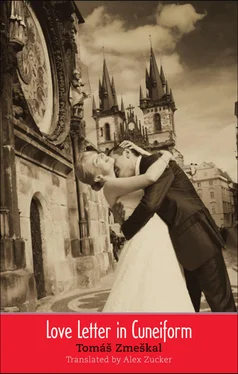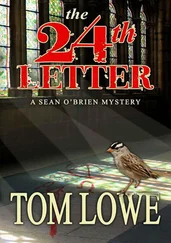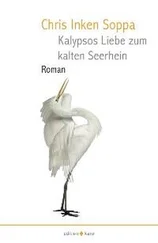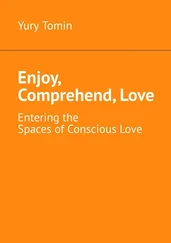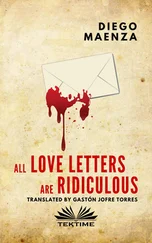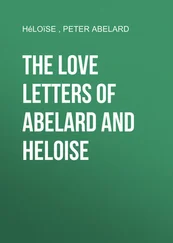“I had no idea we could do it that way,” said the lieutenant.
“Yeah, well, as long as the bio is written and submitted to us as a statement, it gives us authority to act on the basis of that.”
“That never occurred to me,” said the lieutenant.
“Yeah, Vašek’s done it like that a few times down in Budějovice.”
“I had no idea.”
“But it won’t do us any good anyway.”
“No? Why not?”
“Because the poor old guy will probably die before he finishes it. Even if he does make it all the way to the end and doesn’t go out of his mind from reliving all the horrors, they’re still planning at least three more revisions to the law.”
“And that’ll affect this too?”
“Well, not directly, but indirectly it’s going to mean even if he does go ahead with it, the whole thing’ll be a wash.”
“Shouldn’t we tell him?”
“Once the amendments go through, sure, but it hasn’t happened yet.”
“But it might.”
“Yes, it might, and it probably will, but it hasn’t happened yet.”
“So what do we do?”
“Let grandpa have a few more months of hope. Keep taking care of my flowers like this, Lukáš, and I’ll put you in for a promotion.”
“A bonus would do,” said the lieutenant.
“After a watering like this, a bonus is practically in the bag.”
“So what about grandpa?” said the lieutenant.
“Well, if it’s looking totally hopeless, we could put his name in for a medal.”
“We could do that?” asked the lieutenant.
“Not officially, of course,” said the blonde. “But unofficially it could be arranged.”
“How so?” asked the lieutenant.
“It all depends on the situation, my dear Lukáš. Maybe we can’t help him, but a medal doesn’t cost anyone anything, and if there’s an appropriate occasion, we’ll see. From the looks of it,” said the blonde, taking another look at the flowerpots, “I think I’m going to have to buy some peat.”
6. APPLIED DANTE AND A THEORY OF LANGUAGE
Dr. Antonín Lukavský arrived at work a half hour early that day. It was genuine, authentic prespring. He walked through the main gate of the park surrounding the institute and greeted one of the two apathetic guards. Then, realizing what time it was, he decided to go and sit a while by the small artificial lake, which was still only partially filled. He sat down on a bench, rummaged around a while in a big gym bag, and finally pulled out a thick book whose cover suggested that it was a technical publication. It had been a few years now since the Soviet-led invasion of August 1968, and technical publications were increasingly hard to come by. He reached into his pants pocket, pulled out his cigarettes, opened the book, lit up a smoke, and began to read. Behind him stood a tall bush that would burst forth with flowers over the course of the coming weeks, giving off a scent that was practically narcotic. For now, though, it was just a bush. The garden’s layout, with its forking paths unexpectedly dividing and uniting, ensured perfect privacy. There were just two spots that offered a view of nearly the entire park. Every now and then Antonín thought about suggesting they put in plants around each pavilion having some association with the illnesses treated inside. As he lit his second cigarette, he heard two voices engaged in discussion behind him. He ignored them for a while, but eventually his concentration lapsed and he began to eavesdrop in spite of himself.
“But they don’t get it at all, Marek,” said the first voice.
“No, Václav, they certainly don’t,” said the second voice, higher and shriller.
“They don’t get the meaning of the myth or the assistant,” said Václav.
“Or the assistant,” Marek repeated.
“Although actually … the myth is the assistant, isn’t it?” said Václav.
“Absolutely, brother. We’re in agreement there. Full agreement, not the slightest debate.”
“And yet they don’t understand,” Václav said.
“Of course the question posed in that way is neither substantiated nor explicated. Though of course,” Marek gave a shrill laugh, “what do they truly understand, right?”
“What do they understand?” Václav repeated in his lower voice.
“It’s neither posed nor substantiated nor explicated, am I right?”
“Of course, things are constantly coming into being,” said Václav. “Danger and delight, no one is forgiven anything, or absolved of anything, either. Danger and delight just keep on wrapping themselves in new sheets, and no one is forgiven even so much as a cent.”
“You’re right about that, little brother. Not a penny,” Marek said.
Suddenly realizing that the second, higher voice belonged to his patient Marek the pastry chef, Dr. Lukavský perked up his ears.
“So what would you do, friend, if you had to write a myth? What would it be about?”
“I think the best … hm … I think it’s best when they’re about a country or a person. Don’t you?”
“No. Listen, friend. You’re not paying attention. Pull yourself together. Sharpen up and stop eating so much of that French herb. I can’t stand the smell.”
“All I smell is cigarettes.”
“Cigarettes? Please. The whole park stinks of French seasoning.”
“I promise it won’t happen again.”
“The answer is hidden, as always, in what you were saying. As always, the most enigmatic problems are best hidden in broad daylight.”
“In what?”
“Broad daylight,” Václav repeated. “That means out in the open, in other words staring you right in the face. A myth shouldn’t be either/or, but both/and.”
“Both/and?” Marek said.
“Yes. Both about a country and about a person.”
“So there you go.”
“Exactly.”
Dr. Lukavský heard a loud belch, immediately followed by a yawn. Then a third voice breathlessly joined in:
“I just woke up at the edge of a pool of water where I was walking along the bottom and rushing toward the surface. You see, surfacing equals waking up. One is always equal only to one. As long as it isn’t divided by zero, that is. Then I woke up and overheard the two of you. But the main thing I wanted to say is, Stop eating so much garlic, František. I can’t stand it. And we’re out in the open.”
“That’s what I keep telling him,” Václav said. “It stinks up the whole place, and besides, who knows what side effects it has?”
“Side effects?” the pastry chef said. “What side effects?”
“Who knows?” said Václav. “Maybe revolution.”
“Revolution?” the pastry chef said. “As a side effect of eating garlic, or as you call it, the French herb? Alias the culinary weed?”
“The influence of digestion on political and philosophical thought has without doubt yet to be adequately explored,” Václav said. “I’m giving you both an assignment for tomorrow. Consider carefully which dishes would best represent the following three slogans.”
“I’m going to have to write this down,” the third voice said.
“First, Liberté, Egalité, Fraternité. Second, God Save the Queen. And third, Truth Prevails!”
“The last one’s easy, brother Václav. Wild boar with cowberries,” the pastry chef said.
“Why wild boar and why cowberries?” Václav asked.
“I was soaking wet when I trudged over here. In my dream I overslept a little and had a little swim. It was quite the rude awakening when I sloshed up to shore. As to your question concerning myths, I must say, years ago I outlined this very problem in a letter to my friend Scaliger, vicar general of the imperial government in Vicenza and Verona.”
Читать дальше
